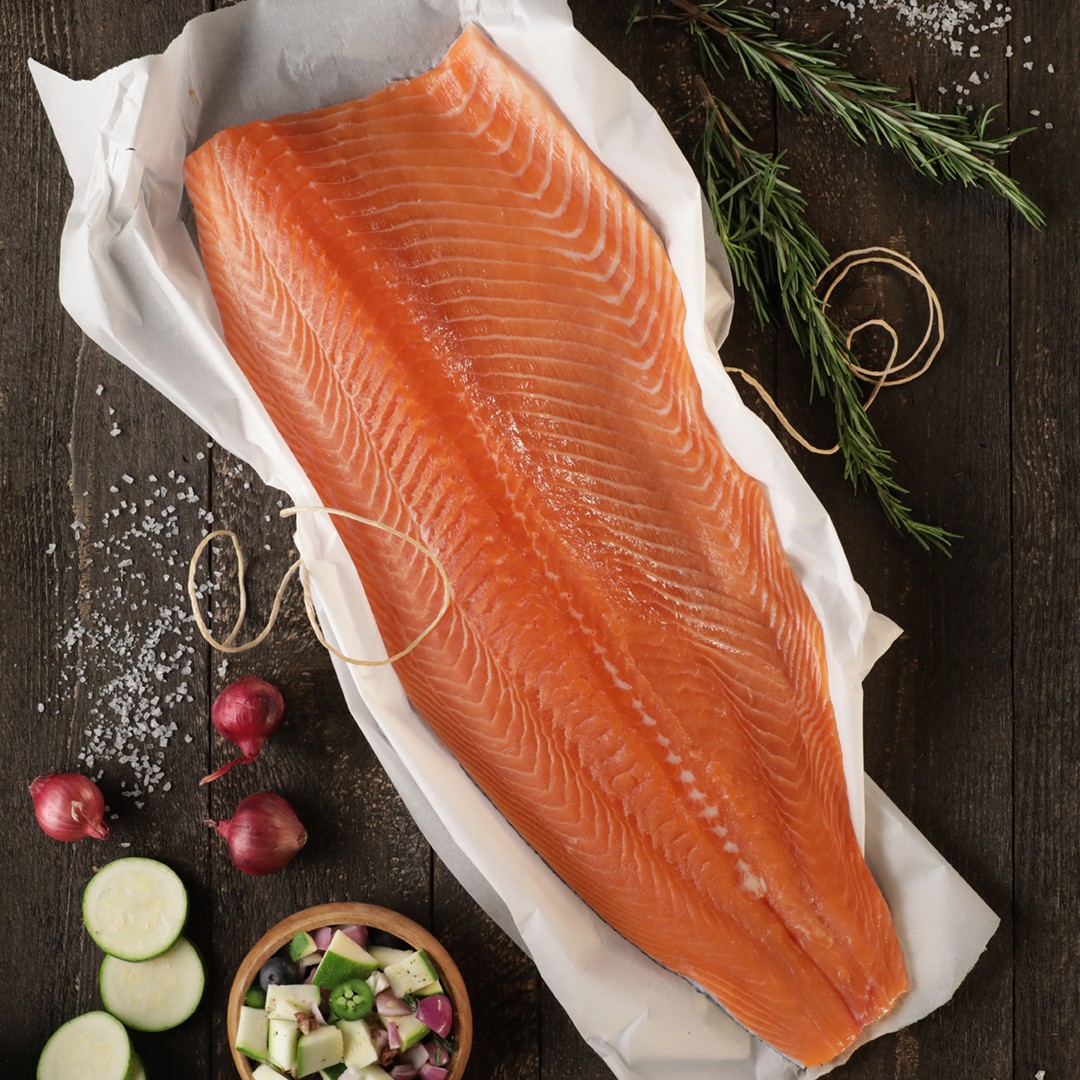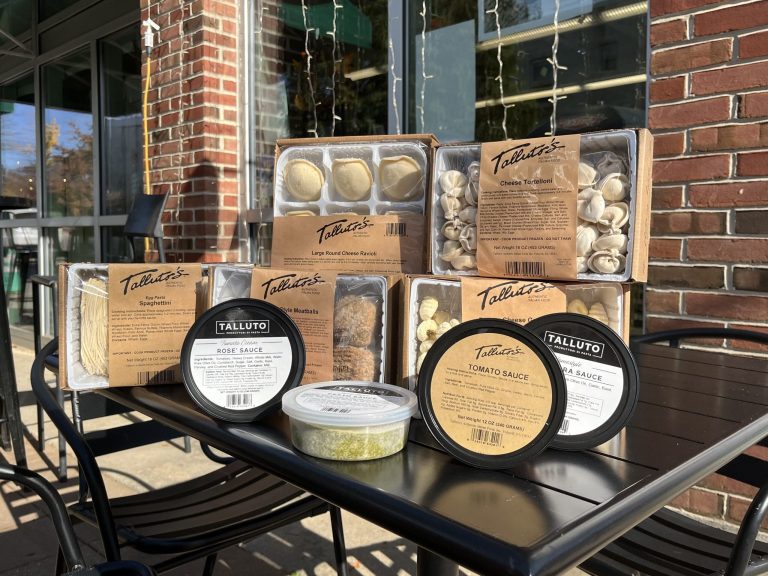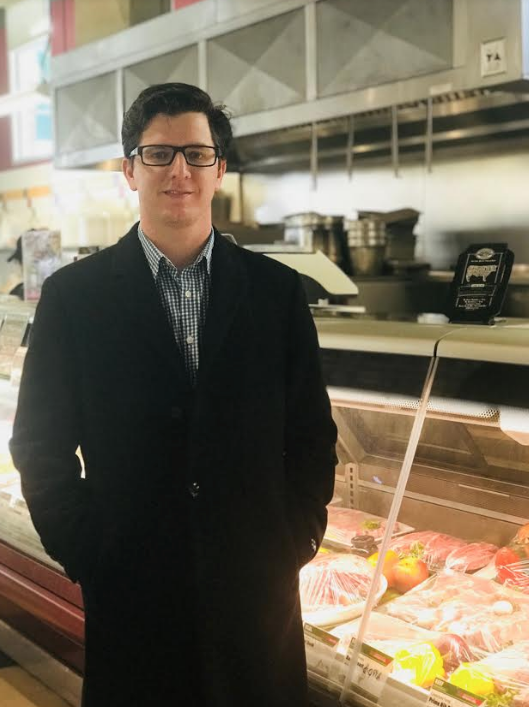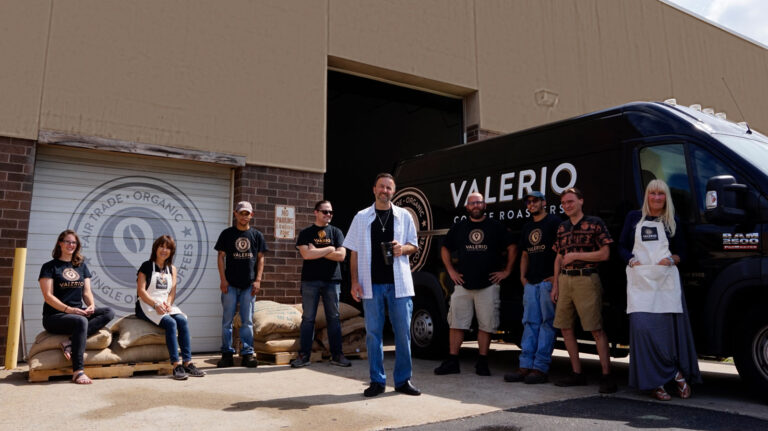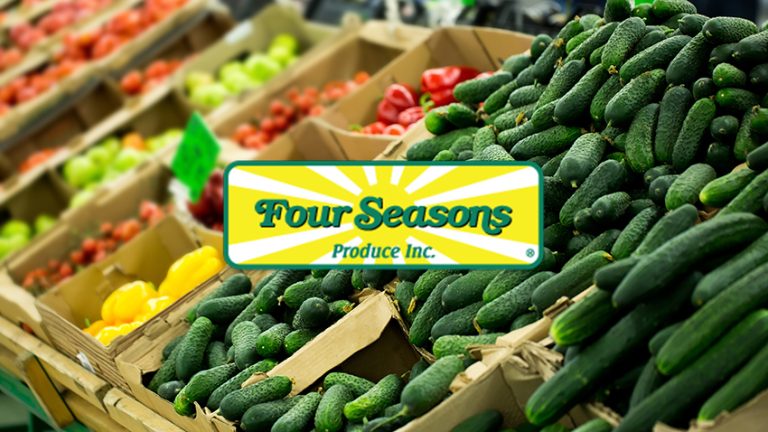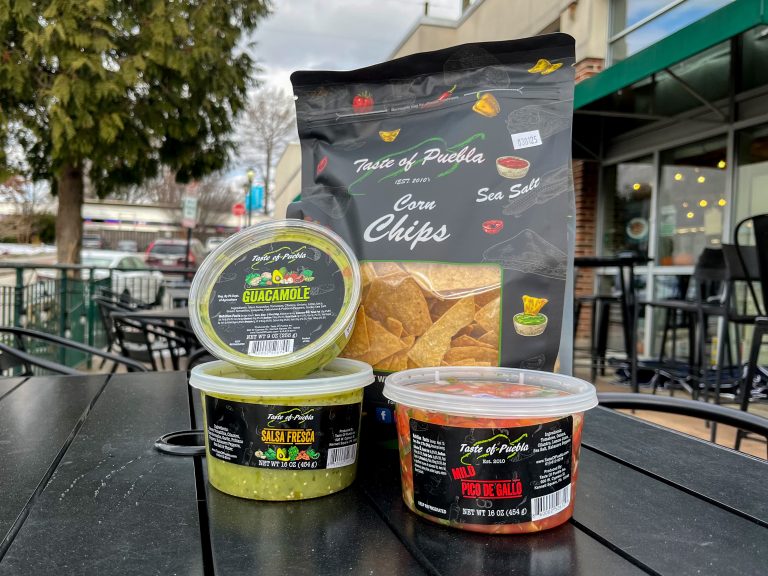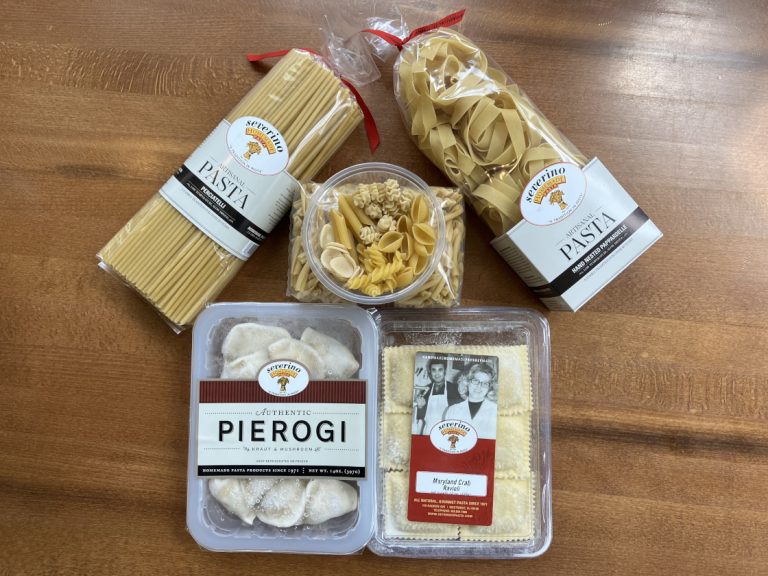Products and Services
Samuels Seafood Co. is a large and successful wholesale company with a very broad offering of delicious, nutritious seafood and a strong focus on sustainability practices; the Swarthmore Co-Op sources nearly all our seafood from them.
As an additional point of pride, Samuels Seafood has been operating as a family business, largely based in Philadelphia, for five generations!
History
Samuels Seafood Co. traces their roots to Gaetano Darigo, who was making his living as a commercial fisherman in Sicily in 1895. In 1919, Giuseppe D’Angelo came to the United States and married Darigo’s daughter, and in 1934 Darigo retired and left his business to D’Angelo—around this time, pushcarts were being replaced by horse-drawn wagons to deliver products! D’Angelo opened his first fresh seafood shop in Philadelphia in 1945 and named it Ippolito’s. Eventually, D’Angelo left the business to his grandson, Samuel D’Angelo, and in 1989 Samuel rebranded the business as Samuels and Sons Seafood (then later, Samuels Seafood Co.) to focus on wholesale.
Nowadays, Samuels Seafood Co. operates out of a 60,000 square foot facility in South Philadelphia, with additional branches in Pittsburgh, Florida, and Las Vegas, offering true nationwide reach and over 100 years of family-owned and -operated service.
Sustainable Seafood in General
To truly make sustainability-focused seafood purchasing decisions, you need to be willing to do your research. Companies like Samuels Seafood Co. do their best to make sourcing decisions responsibly, but any company’s pursuit of a diverse and affordable catalog will inevitably lead them to make decisions that informed consumers might not make for themselves.
The Monterey Bay Aquarium’s Seafood Watch is a spectacular resource for consumers—you can plug in the type of seafood you’re looking for and it will give you specific recommendations on which third-party certifications to look for (there are many!), where in the world the most sustainable source of that seafood is being grown or harvested, and what type of harvesting method the most environmentally-responsible suppliers are using.
Sustainability at Samuels Seafood Co.
Samuels Seafood sources their products globally, which increases the carbon footprint of their products in general, but they aim to do so with a strong backbone of ethics and sustainability. Their purchasing decisions are based on guidance from experts, scientists, and organizations including the Marine Stewardship Council, the Aquaculture Stewardship Council, the Monterey Bay Aquarium, and Alaska Seafood Marketing Institute.
Samuels Seafood Co. also considers sustainability when it comes to preparing, cleaning, and packaging their products. Employees are trained to reduce waste when cutting fish. Their ozone water sanitation system removes the need for harsh chemicals when cleaning the holding tanks and allows for longer sanitized production hours—leading to a reported 60% increase in seafood shelf life as well as an 85% reduction in chemical and hot water usage.
Focusing specifically on salmon, Samuels Seafood Co. partners with True North Seafood Company and Fundy Salmon Recovery. Alongside True North, Samuels Seafood sells salmon from Jail Island, Canada. Jail Island is the only place to get four-out-of-four star BAP (Best Aquaculture Practices)-certified farmed salmon in North America; where producers work hard to grow fully traceable salmon, from egg to plate. A portion of Samuels Seafood Co.’s proceeds of each pound of Jail Island salmon goes to Fundy Salmon Recovery, which works to increase the number of wild Atlantic salmon in the Bay of Fundy, where they are an endangered species.
About the Authors
Vlad Stefanovich
Vlad Stefanovich graduated from Penn State University with a BS in Agricultural Science as well as Minors in Plant Pathology and International Agriculture. He has passions for regenerative crop production techniques and soil conservation, curating fair local markets and resilient food economies, and developing long-term solutions for all aspects of food production. Vlad has dedicated himself to enhancing the Co-Op’s sustainability and also researching how our core vendors marry amazing food with sustainable practices. Vlad’s goal in these vendor profiles is to educate our customers on all aspects of sustainable food—from farm to table.
Stephanie Bonner
Stephanie Bonner (she/her) graduated from Oberlin College with majors in Biology and English and a minor in Environmental Studies, with significant research experience in insects, particularly native bees. She completed a permaculture design course and worked for a range of companies including a nonprofit permaculture demonstration site, an organic vegetable CSA and wholesale farm as the CSA manager, and she has extensive experience as an editor and project manager in academic publishing. Stephanie is committed to sustainability, particularly regarding energy, transportation, waste, and agriculture.
